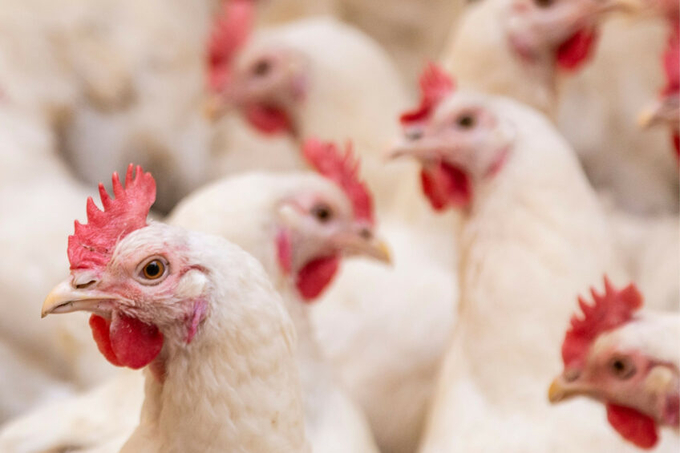November 28, 2025 | 05:01 GMT +7
November 28, 2025 | 05:01 GMT +7
Hotline: 0913.378.918
November 28, 2025 | 05:01 GMT +7
Hotline: 0913.378.918

A study has uncovered specific regions across 9 different areas of the chicken genome where genetic variations appeared to play a role in helping protect chickens from bird flu outbreaks. Photo: Canva.
The study, which was carried out by The Roslin Institute, University of Edinburgh, looked at chickens that survived a major outbreak of highly infectious avian influenza in 2015 and found genetic clues that could help protect chickens from deadly bird flu outbreaks.
Using blood samples, the team analysed the DNA from chickens that survived the viral outbreak and compared them with that of uninfected, presumed susceptible birds, seeking differences that could reveal genes linked to resistance. The birds studied survived a particularly lethal avian influenza outbreak, which saw a mortality rate of over 99%.
Genes and the immune system
The study showed uncovered specific regions across 9 different areas of the chicken genome where genetic variations appeared to play a role. Although no single gene fully explained why some chickens survived, the study pinpointed several genes likely associated with the immune system and the birds’ response to the virus. Regions associated with HPAI resistance were observed on chromosomes 1, 2, 5, 8, 10, 11, 15, 20 and 28, with a number of candidate genes identified.
Some of the genes identified in the birds, including one known as ANP 32A, are already known to play a role in how animals respond to bird flu. This suggests researchers are on the right track, as the presence of a gene with a known role in viral resistance support the idea that the other newly-identified genes may also be relevant to defence against bird flu.
Develop strategies
Dr Jacqueline Smith, senior research fellow at The Roslin Institute, said: “Chicken are extremely vulnerably to highly pathogenic strains of avian flu, so being able to examine DNA from a few birds that survived provided us with a unique opportunity to try and understand the genetics underlying resistance. This research gives us our first look at how the host response may enable birds to fight off infection – something we’re only beginning to understand now.”
With highly pathogenic avian influenza (HPAI) outbreaks becoming more common worldwide and infecting a wider host-range, further research could help scientists develop strategies to protect poultry and inform public health.
(PW)

(VAN) According to Mr. Vo Minh Thanh, Director of the Tay Ninh Department of Agriculture and Environment, Resolution 57 has created a new development pathway for the locality, shifting from traditional toward modern agriculture.
/2025/11/26/4909-2-154329_878.jpg)
(VAN) Pearl grouper farming in HDPE cages not only delivers economic efficiency but also contributes to protecting the environment, creating jobs, and promoting marine-based experiential tourism.

(VAN) The model of making a living under the forest canopy through the agroforestry system in Van Son commune, Bac Ninh province, is expected to generate an annual income of approximately VND 30 million/ha.

(VAN) Many enterprises in Can Tho are harnessing natural energy and reducing greenhouse gas emissions in their production processes, thereby contributing to the promotion of a sustainable green transition.
/2025/11/24/3536-2-112800_176.jpg)
(VAN) Dong Nai now has tens of thousands of hectares of forests certified for sustainable management, and this area will continue to be expanded in the coming period.

(VAN) Vinh Ha hamlet (Dai Xuyen commune, Hanoi) is shifting away from small-scale farming as households adopt bioscurity into their breeder chicken models.

(VAN) Heavy rains make aquatic species more vulnerable to disease. Proactive water management and high-tech systems help farmers prevent outbreaks and protect yields.